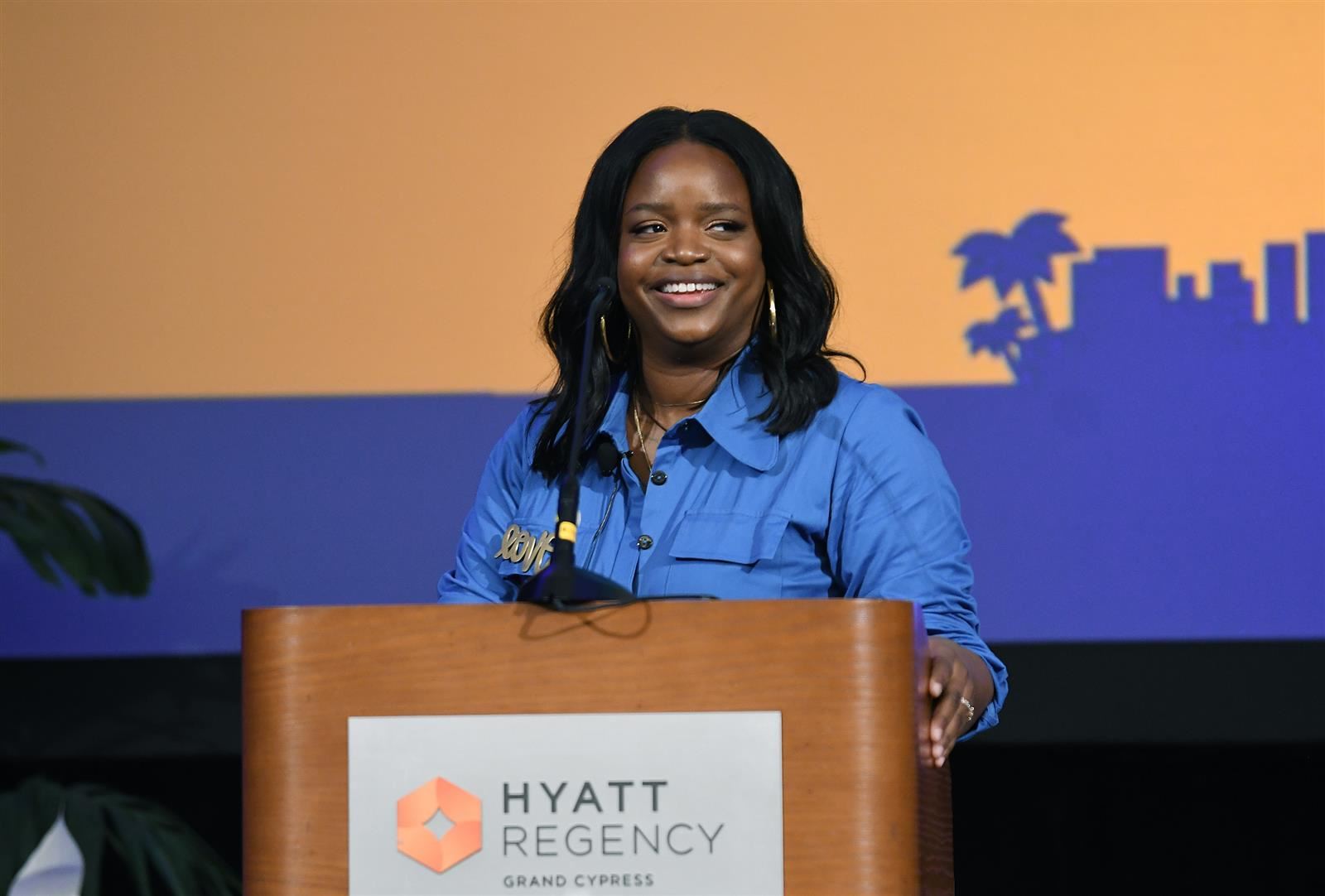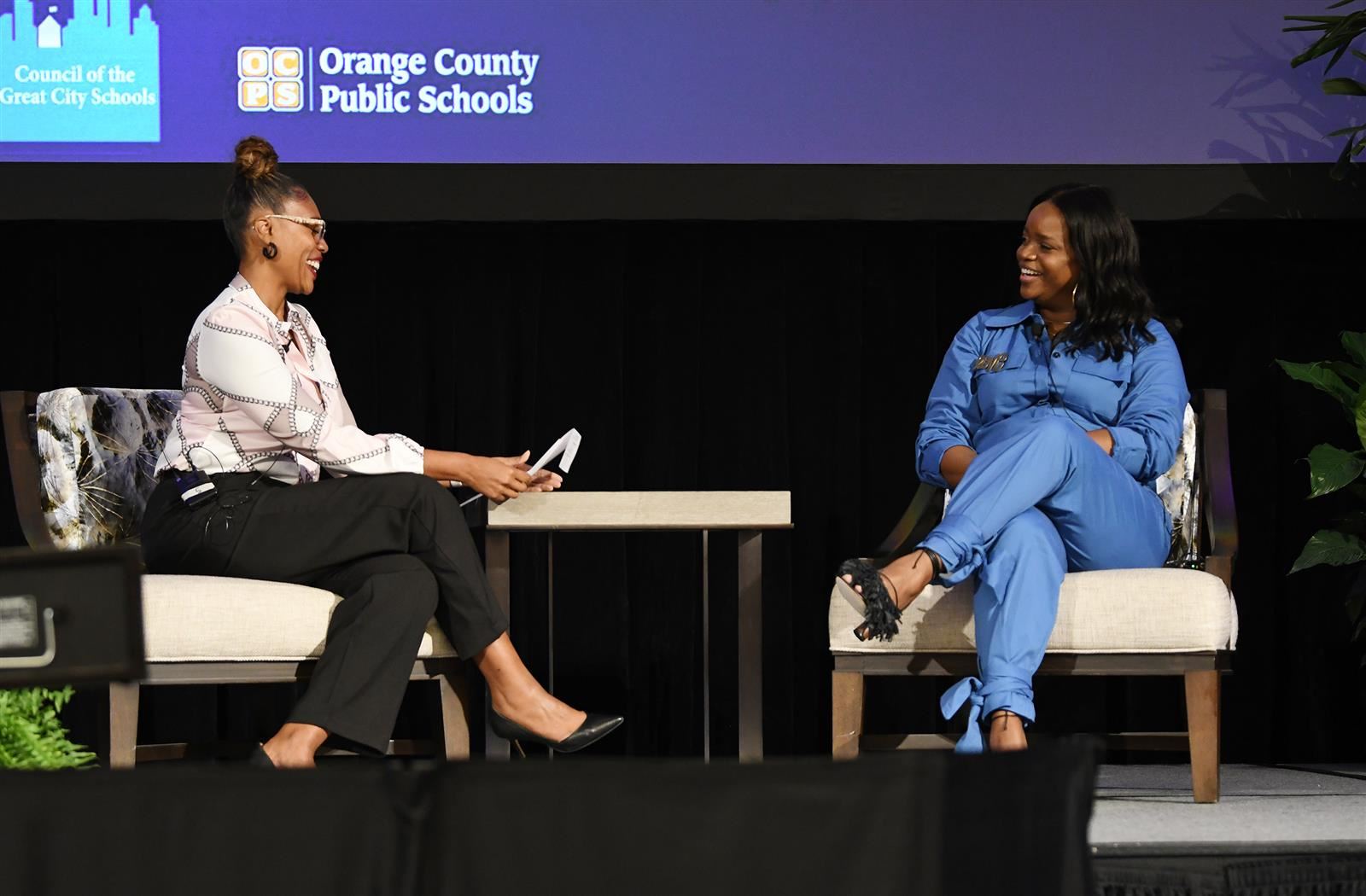- Council of the Great City Schools
- CNN Correspondent, Immigration Advocate & Social Justice Activist Address Council
Urban Educator - November/December 2022
Page Navigation
- Students in Most Urban Districts Hold Steady in Reading on National Test
- CNN Correspondent, Immigration Advocate & Social Justice Activist Address Council
- Politics and Public Education is the Focus of Council Town Hall
- Detroit Superintendent Named Urban Superintendent of the Year
- St. Paul Leader Tenure Extended; Omaha, Columbus, Wichita, Aurora Leaders to Depart
- Philanthropist Donates Millions to Chicago, Cleveland, Detroit, Fresno and Louisville
- Voters Decide on Ballot Measures
- Legislative Column
Social Justice Activist Extols Educators
-
ORLANDO—Brittany Packnett Cunningham, keynote speaker at the Council of the Great City Schools’ 66th Annual Fall Conference, praised the work of educators as “not just a job, not just a vocation” but a calling.

Cunningham offered historical context, drawing on the life of Nannie Helen Burroughs, a civil rights activist and black suffragette who started the National Training School for Girls and Women in Washington, D.C.
Burroughs’ credo --“We specialize in the wholly impossible”—over time came to be embraced by generations of Black women. She advocated for both industrial and classical education and championed Black women’s voting and labor rights.
Burroughs “picked a motto that I repeat to myself often,” said Cunningham, an activist, podcaster and member of President Obama’s Task Force on 21st Century Policing. She was a coordinator of protests in the wake of the police killing of Michael Brown in Ferguson, Mo., in 2014.
Educators do their work “in the context of oppression and systemic racism, and sexism, and Islamophobia, and antisemitism, and all the ‘isms’ that we know hold so many people back,” Cunningham said.
The social justice activist said that Burroughs correctly identified the educator’s unique ability to surmount that challenge. “If education is a calling, then you’ve agreed to answer that call and specialize in the wholly impossible,” Cunningham told big-city school leaders.
 And, she said, the next generation of educators will emerge depending “on how you engage now” to inspire young people to consider teaching as their own career.
And, she said, the next generation of educators will emerge depending “on how you engage now” to inspire young people to consider teaching as their own career. In a Q and A session, Omaha school board president Shavonna Holman asked Cunningham to share her views on the deployment of school resource officers. Could the money be better invested, asked Cunningham, “to create real safety and restorative justice inside the building without the risk of negative [imagery] also being introduced?”
Cunningham said she attended “a wealthy, white, private high school and I never saw a police officer, not at our school, not making presentations, not at the football games, not at the basketball games.” So, she asked, what is the child of color internalizing about self and where they come from as they encounter a school resource officer? “It brings a certain imagery that people in the neighborhood are inherently criminal,” she said.
Don’t introduce the negative, she urged, “because you can very easily hire [someone] that doesn’t involve their ability to handcuff a 7-year-old to a chair. And that’s not hyperbole.”
The activist added: "I'm asking us to think about our budgets, our decision making, as moral decisions and as moral documents and to recognize
the investments that we make teach children a whole lot about how much we believe -- and how much they should believe -- they are worth, and how willing we are to invest, or not invest, in them."
Media Contact:
Contact Name
Contact@email.com
(000) 000-0000
Contact Name
Contact@email.com
(000) 000-0000
Contact Name
Contact@email.com
(000) 000-0000
Media Contact:
Contact Name
Contact@email.com
(000) 000-0000
Contact Name
Contact@email.com
(000) 000-0000
Contact Name
Contact@email.com
(000) 000-0000


